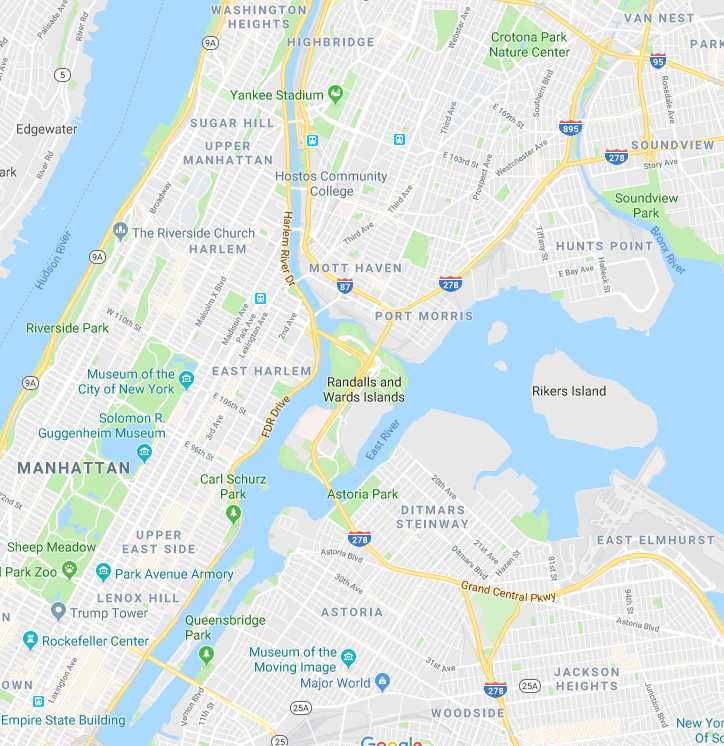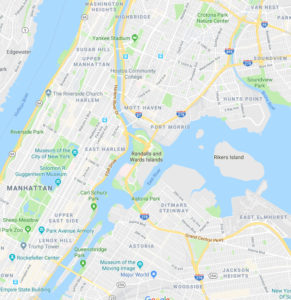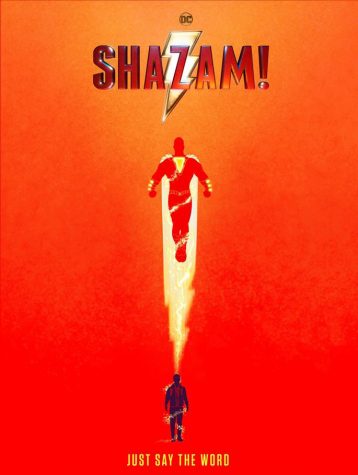New York City Grid System vs. Good Will Hunting

New York City Grid System vs. Good Will Hunting
The grid system was first established by the Commissioners' Plan of 1811. (Courtesy of Google Maps).
The grid system was first established by the Commissioners' Plan of 1811. (Courtesy of Google Maps).
April 25, 2018
Filed under Culture
Hang on for a minute...we're trying to find some more stories you might like.
Email This Story

The grid system was first established by the Commissioners’ Plan of 1811. (Courtesy of Google Maps).
By Tim Mountain and Kevin O’Malley
Welcome to the second edition of Is It Better Than Good Will Hunting?, the weekly culture review column where Kevin O’Malley and Tim Mountain compare food, media, experiences and more against the world of art that produced Oscar-winning film Good Will Hunting.
For our second edition, we have decided to compare the New York City grid system.
Some background info: Good Will Hunting is a 1997 coming-of-age drama starring Matt Damon, Robin Williams, Ben Affleck and Minnie Driver. It was directed by Gus Van Sant and written by Damon and Affleck. It is now considered to be one of the finest films of all time, and currently holds a 97% approval rating on Rotten Tomatoes.
The New York City grid system is the arrangement by which streets on the Island of Manhattan are named. Streets (running east-to-west) are numbered starting with First Street farthest south. Avenues are numbered starting with First Ave. farthest east, though the pattern breaks with Lexington, Park and Madison Avenues between Third and Fifth.
Tim: Well, Kevin, we have a heck of a contest here this week. Two giant figures in American culture going head-to-head.
Kevin: Right you are, Tim. I’d say this is New York City’s grid system’s biggest test since last year’s Thanksgiving Day Parade!
T: I think it’s even bigger than that, Kevin. Last I checked, Matt Damon didn’t have a float last year.
K: Right you are. Well then, let’s just float on over to the island of Manhattan to see what this organized grid is all about.
T: Let’s. Having been born and raised in New Jersey, Manhattan’s grid system has always been kind to me. My weekend trips to “The City That Never Sleeps” became more and more frequent in my latter days of high school. These trips would’ve been nightmares if I didn’t know exactly how many blocks it would take to get me back to Penn Station!
K: I agree, Tim. After I started going to school in New York, I found the streets fairly easy to navigate. I always knew how many blocks away I would be from a certain point, and I’m thankful for that. Even though Manhattan is not a perfect rectangle itself, it pretty much gets the job done with only a few blemishes.
T: Yeah, I do have a couple criticisms, here. First of all, what the heck is going on with Lexington, Park, and Madison Aves.? I often find myself getting lost on the east side.
K: Exactly. And Alphabet City? Talk about a reach. Not to mention that you have Broadway, almost completely compromising the idea behind the grid system.
T: Also, why aren’t any of the streets numbered south of Houston? Even if there’s a good historical reason for it, they could’ve changed it at some point. Houston should really be called “zero street.” And to that point, Prince St. should’ve been renamed negative-first street, Spring St. should’ve been renamed negative-second, and so on.
K: And if I get past the Madison, Park and Lexington stuff, then I still have to wrap my head around what’s happening with the transitions from Ninth and Tenth Aves. to Columbus and Amsterdam, respectively. In some places, it’s just a mess.
T: So, how does our city’s cherished grid system stack up against our favorite movie?
K: I’m glad you asked, Tim. As a big fan of the systemic organization of the grid, I don’t think it’s any surprise that I have come to appreciate the beautifully organized screenplay behind GWH.
T: You raise an excellent point there, Kev-o. GWH is a piece of art, and I don’t want to paint it as being too cerebral or purely analytical, but its pieces fall into place beautifully by the end. This is a film that is well-organized and thought out, as evidenced by its winning the Oscar for Best Original Screenplay. Damon and Affleck excel in areas where New York’s early planners fail miserably.
K: That’s the number one thing the Academy looks for: organization. And while GWH interweaves numerous gripping storylines, none of them seem to be out of place, or off the map whatsoever. Take for example the conflict between Sean Maguire and Professor Gerald Lambeau. Sure, this doesn’t weigh too heavily on the Will’s journey, but without such a dynamic, surely the movie would not be the same.
T: Damon and Affleck never would’ve put something as irresponsible as Alphabet City into their movie.
K: Not counting Cole Hauser of course.
T: Seriously, what is Cole Hauser — or, for that matter, the character Billy — doing in this movie? He adds absolutely nothing.
K: Sure, they needed another body in the film to build the large-family-picture that is so prevalent in Will’s backstory, but they could’ve given him slightly more depth.
T: At the end of the day, Kevvy, what it comes down to is consistency, and boy is GWH consistent. Like you said, the plotlines are congruent with one another, and every character and event has a purpose. Except for Billy. Like we both agreed, he has no purpose.
K: I’m gonna give this one to GWH. The grid system is a great idea, and it works excellently on the whole, but too many people got involved, and it contains some of the greatest failures in large-scale urban planning. I give it to GWH by a Boston mile.
T: What’s a Boston mile?
K: 1,760 yahds.
T: Hahahahahaha. But, yeah, I think we’re in agreement yet again, pal. GWH takes it. The grid system is helpful in the span of a couple square miles, but GWH is helpful for the soul–in the span of a lifetime.
K: I’d give the New York City grid system an Oscar, but it would probably be for Best Sound Editing. This one gets a 65% on Rotten Tomatoes.
T: That’s about where I’d put it. If you find yourself lost somewhere in Manhattan, don’t bother with a map. The parts of the city that follow the grid are easy enough to navigate without it, and the parts that don’t are so confusing and weird that no map will ever help you. Instead, we both recommend bringing along a copy of GWH’s screenplay. That way, even if you end up lost in New York, you’ll find yourself in this cinematic masterpiece.










If you want a picture to show with your comment, go get a gravatar.